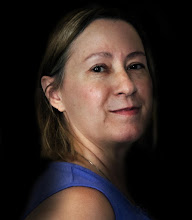One of the hardest parts of writing a book for me is the beginning. I have to remind myself of this writing rule: ‘never start your story at the beginning.’
Huh?
Exactly what I thought at first.
Then I gave it some thought. How a writer starts the story is really important. A story that starts too slow might lose readers.
Gone are the days when a writer can start a story with pretty prose and no action, and be able to lull readers into the story. Modern stories have to begin with action or at a significant part of the story.
As I was writing a new book I thought about this writing rule, and ended up cutting the first three chapters. Since I already know that beginnings are my weakest point, I took a hard look at this latest WIP and decided it needed to start with more action. The great thing about writing today on a computer is I can always go back and add the three chapters if I want to, but I doubt I will. If I thought the beginning was too slow then readers will certainly think it is slow.
Writing a good story is about making hard choices. A writer needs to be able to step away from the story and take an unbiased look at their work. This isn’t easy to do. I had a hard time with deciding to make changes to the beginning after slaving over the first three chapters. In the end though I decided the changes were necessary to improve the story.
So, get out there and write your heart out, but don’t be afraid to take scissors or that delete button to that beginning.
Happy writing and reading!
Note: In addition to my long hair hotties feature on the 1st of each month, I will also be posting on the 15th of each month about writing tips or life experiences.
Kelley Heckart
'Timeless tales of romance, conflict & magic'
http://www.kelleyheckart.com
http://twitter.com/CelticChick
http://www.facebook.com/pages/Kelley-Heckart/111838455604
For some, spring’s song is the sound of a harsh battle horn, for others, new love, for all—certain danger.

My book page at Awe-Struck
http://www.king-cart.com/Awe-Struck/category=Kelley+Heckart/exact_match=exact













